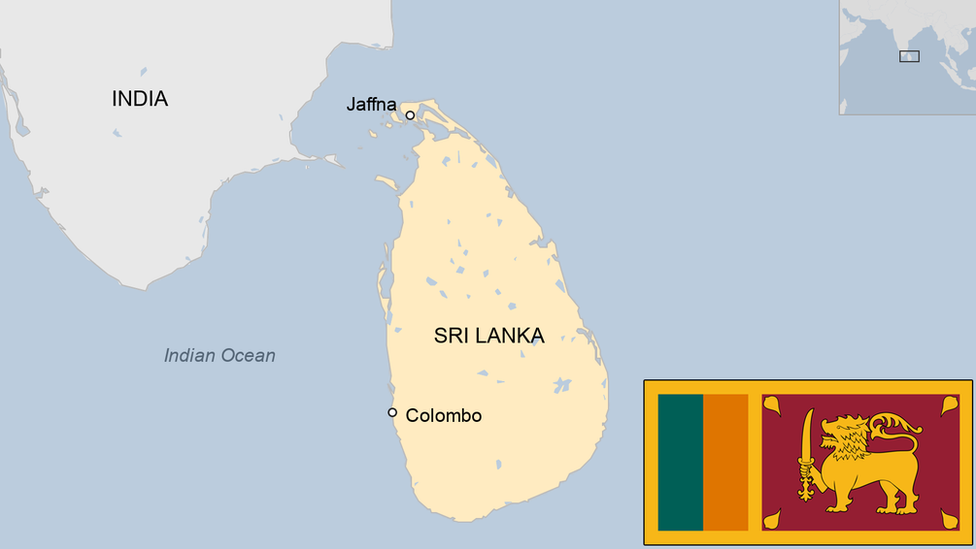Sri Lanka: 'I can’t afford milk for my babies'
- Published
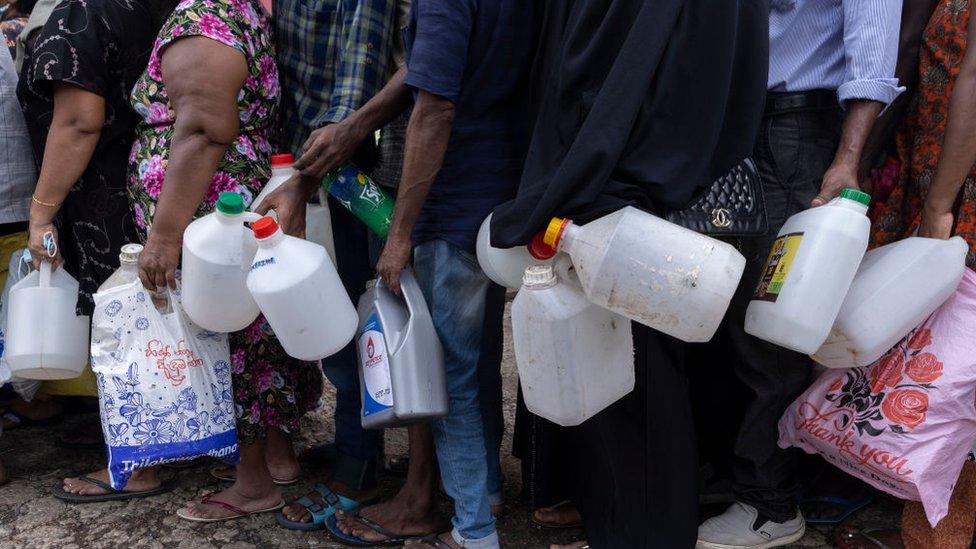
Sri Lanka is facing its worst food and fuel shortages in living memory
The smell hits you first - freshly cooked rice, lentils and spinach, served in ladles from steaming pots.
Dozens of families - including mothers with babies - are lined up with plates to get a serving of what will likely be their only meal for the day.
"We are here because we are hungry," says Chandrika Manel, a mother of four.
As she kneads a ball of rice with her hands, mixing it with the lentils and spinach before feeding it to one of her children, she explains that even buying bread is a struggle.
"There are times I [give them] milk and rice, but we don't cook any vegetables. They're too expensive."
Depleted foreign reserves and soaring inflation have devastated Sri Lanka's economy in recent months. President Gotabaya Rajapaksa - who pushed through tax cuts that shrunk the state's coffers and borrowed heavily from China to fund ambitious infrastructure projects - has been blamed for the crisis. The pandemic, which hit tourism, and the war in Ukraine, which sent oil prices rocketing, has only made the situation worse.
But now Sri Lanka is on the brink of a humanitarian crisis, the United Nations Children's Fund (Unicef) has told the BBC.
The organisation found that 70% of the country's families have cut down on food since the start of the year, and stocks of fuel and essential medicines are also fast running out.
'My children are miserable'
This is Ms Manel's first visit to a community kitchen as she found her options disappearing: "The cost of living is so high, we are taking loans to survive."
The kitchen is a month old - Pastor Moses Akash started it in a church hall in Colombo after meeting a single mother who lived off a jackfruit for three days.
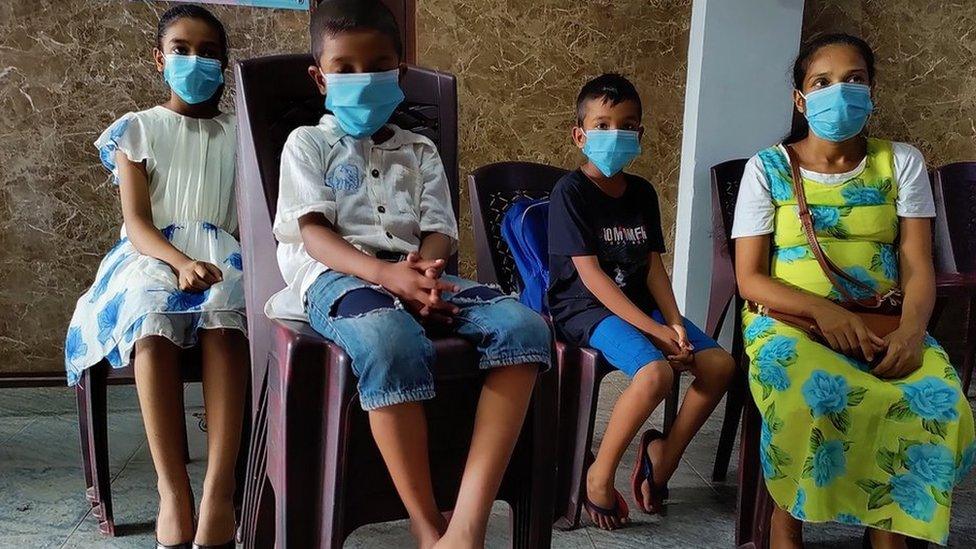
Sahna and her three children are among hundreds who visit the community kitchen
"We get people who haven't had a second plate of rice for the last four months," Pastor Moses says.
By his estimate, the number of people queuing up for food has grown from 50 to well over 250 a day. It's not surprising given that food prices in Sri Lanka went up by 80% in June alone.
"I see a lot of children especially, most of them are malnourished," he says.
Sahna, a pregnant 34-year-old who goes by her first name only, is also in the queue with her three young children. She is due in September and anxious about the future.
"My children are miserable. They're suffering in every possible way. I can't even afford a packet of biscuits or milk for my babies."
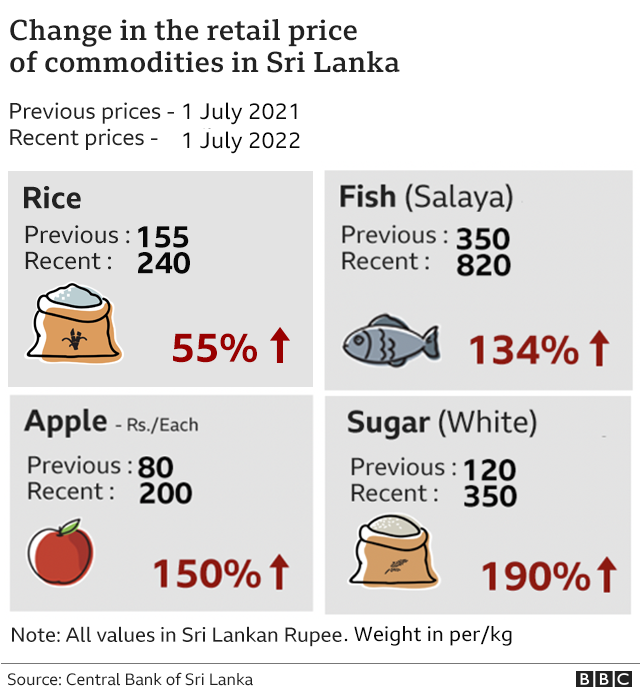

Sahna's husband, who is a labourer, earns just $10 (£8.20) a week to support the entire family.
"Our leaders are living better lives. If their children are living happily, why can't my children?" she asks.
A looming humanitarian crisis
By the time Sahna's child is born, things are expected to get worse.
The mayor of Colombo recently said that the capital has enough food only until September.
With shortages of fuel and cooking gas, and daily power cuts, families are unable to travel to buy fresh food or prepare hot meals.
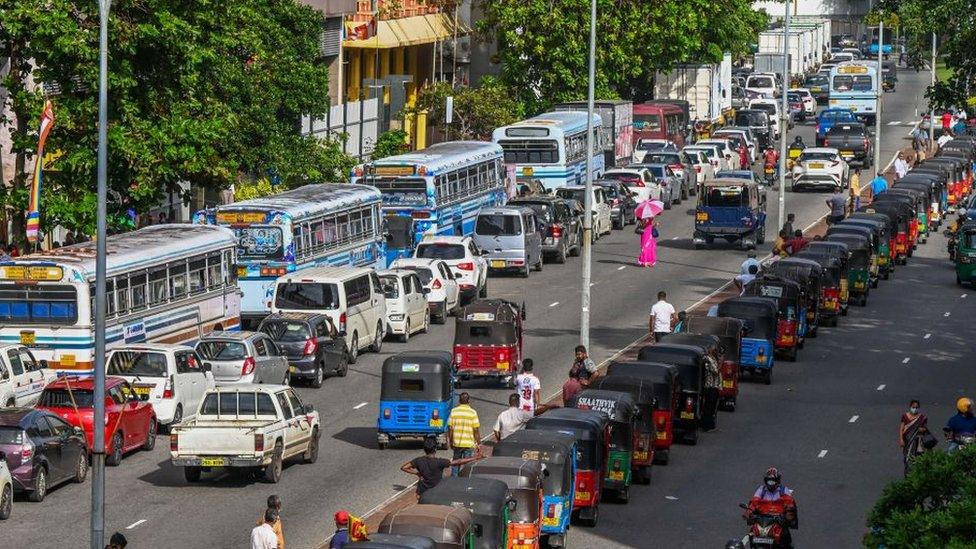
Dwindling fuel stocks have led to vast queues at pumps
"Families can't buy what they used to buy. They are cutting down on meals, they are cutting down on nutritious food. So we are definitely getting into a situation where malnutrition is a major concern," said Christian Skoog, Unicef's representative in Sri Lanka.
"We're trying to avoid a humanitarian crisis. We're not yet at children dying, which is good, but we need to get the support very urgently to avoid that."
Unicef has appealed for urgent financial aid to treat thousands of children with acute malnutrition, and to support a million others with primary healthcare.
Acute malnutrition rates could rise from 13% to 20%, with the number of severely malnourished children - currently 35,000 - doubling, says Dr Renuka Jayatissa, president of the Sri Lanka Medical Nutrition Association.
The crisis has brought forth a sense of solidarity, with people often relying on the kindness of strangers. But even kindness and hope are becoming precious commodities.
Dr Saman Kumara at Colombo's Castle Street hospital says that if not for the goodwill of donors, his patients - tiny newborns - would have been at great risk.
He says his hospital is now "completely dependent on donations" for essential medicines and equipment, and urged more donors to come forward as patients' lives are in danger.
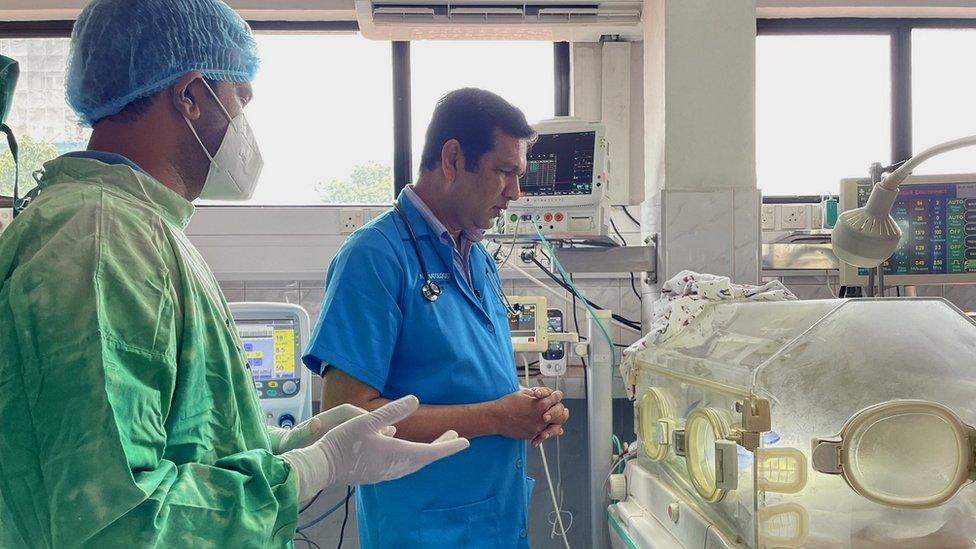
Dr Saman Kumara says his hospital is relying entirely on donations to keep running
Back at the community kitchen, Chandrika is scooping the last morsel of food into her son's mouth.
"My best days are done. But our children have so much ahead of them," she says.
"I don't know what will happen as they grow up."
You may also be interested in:
Watch: Sri Lanka protests unify a nation where ethnic fault lines run deep
- Published4 July 2022
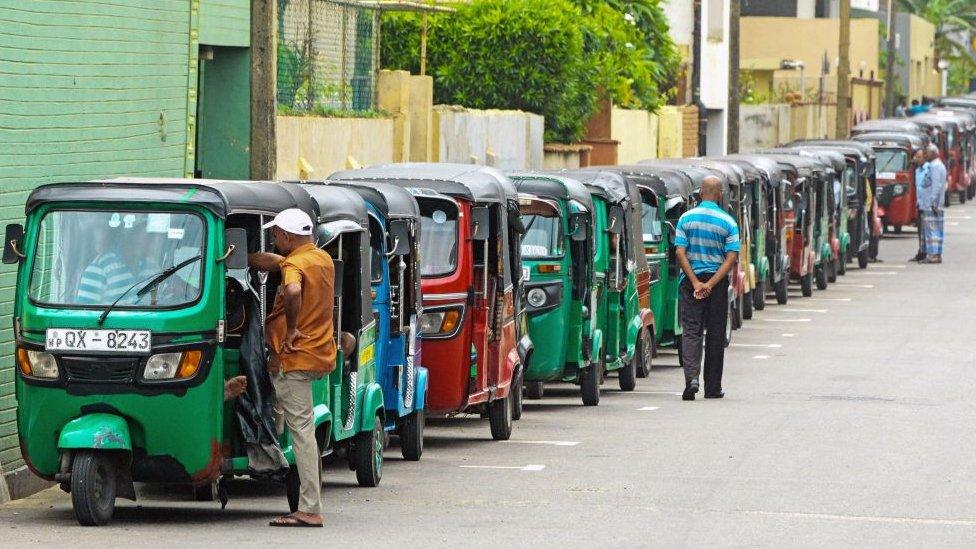
- Published12 January 2022
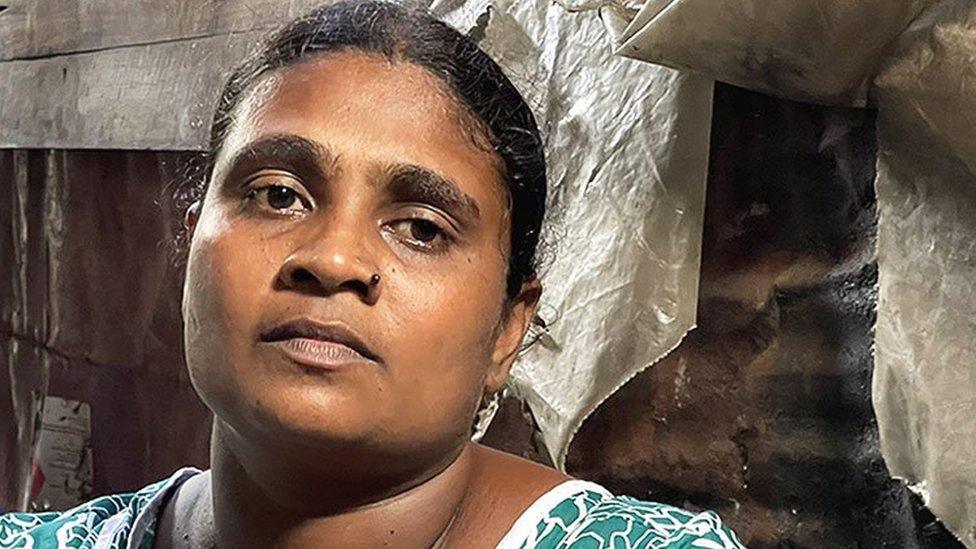
- Published29 March 2023
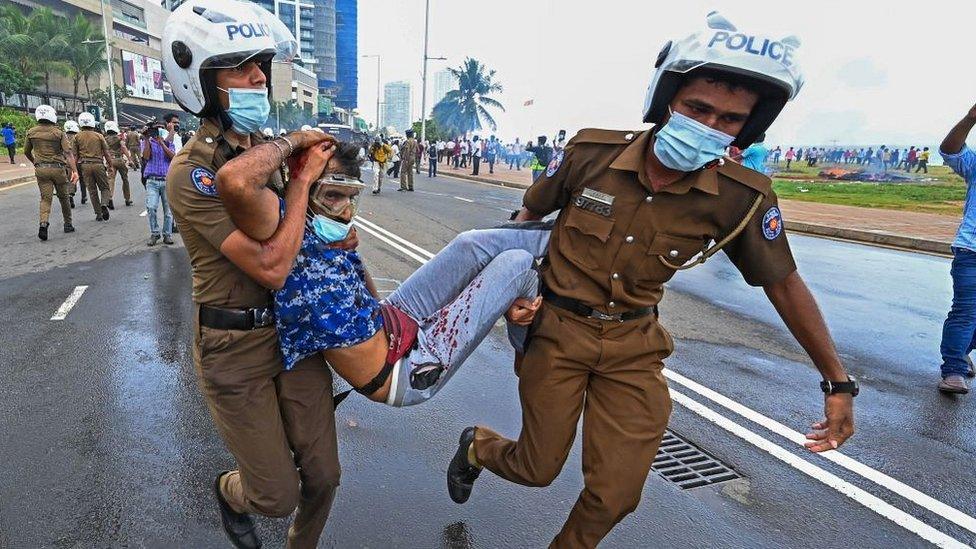
- Published13 July 2022
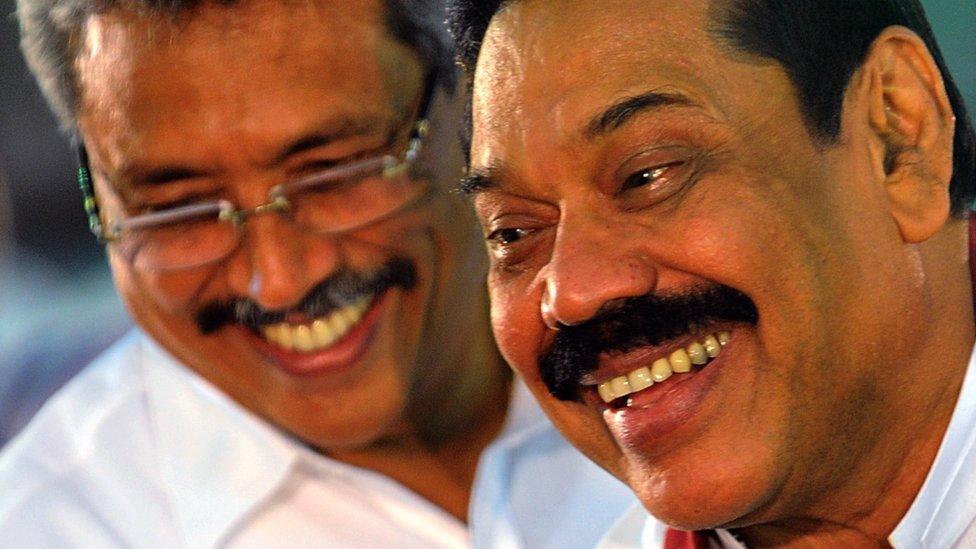
- Published4 October 2024
